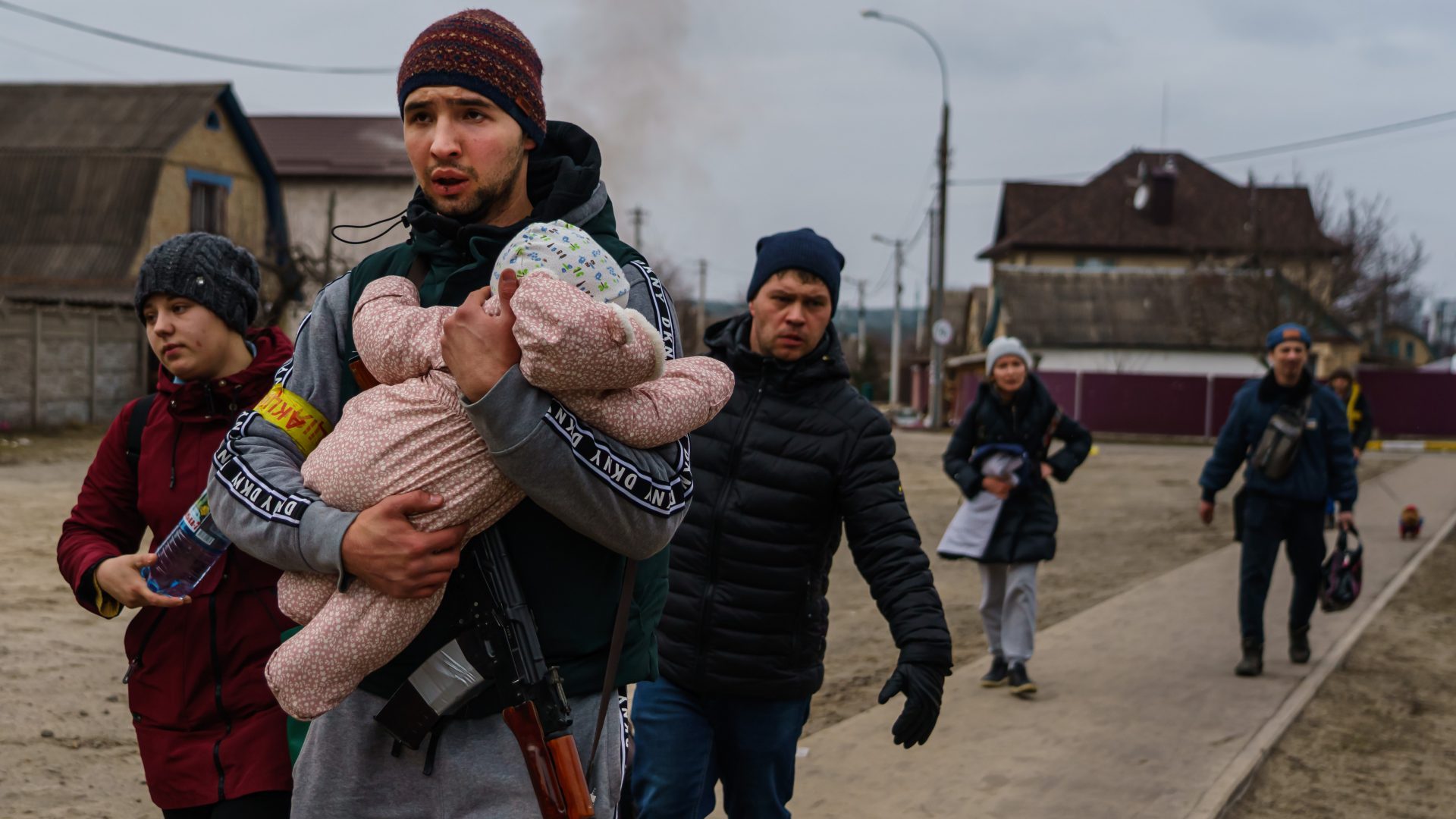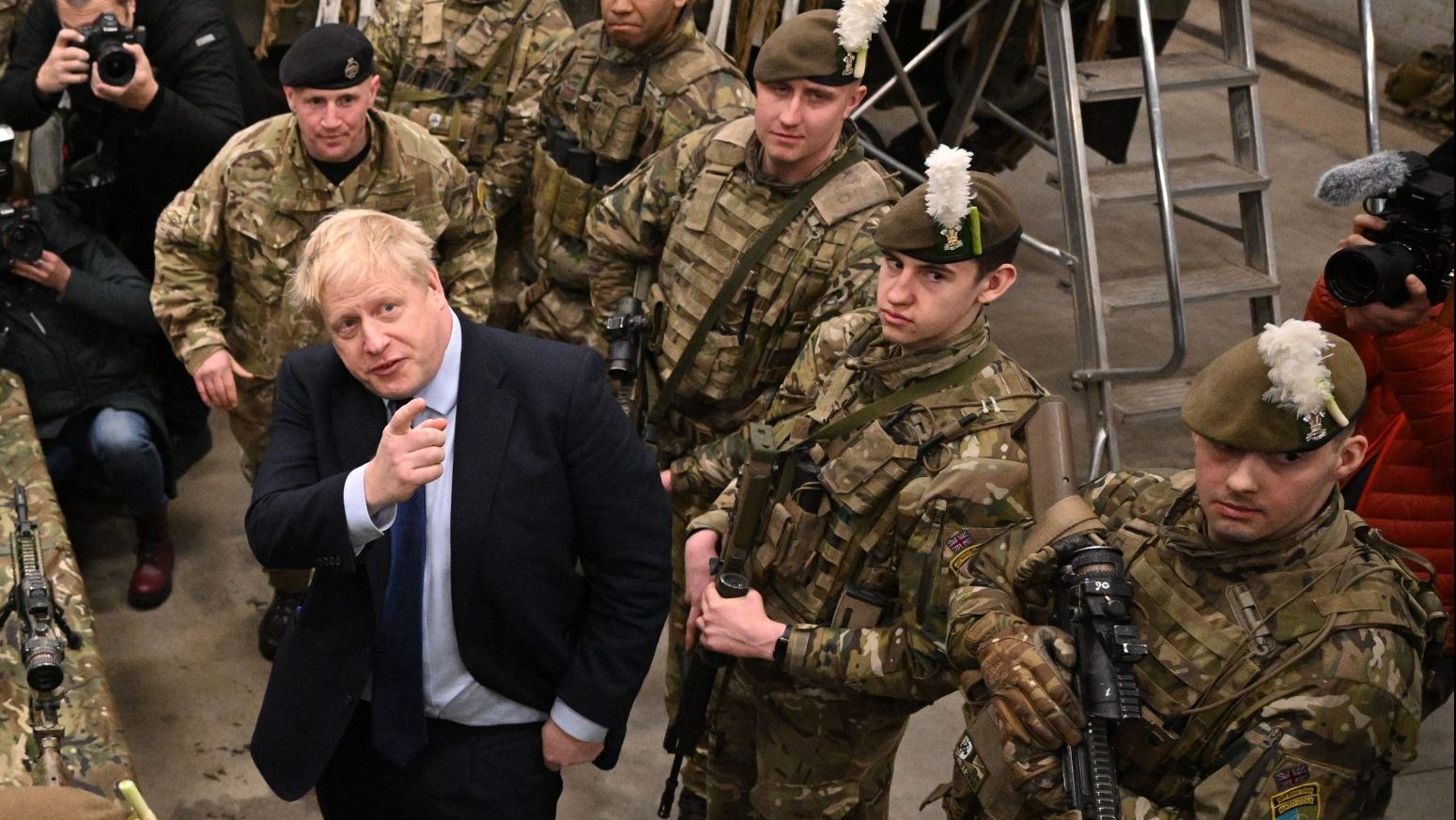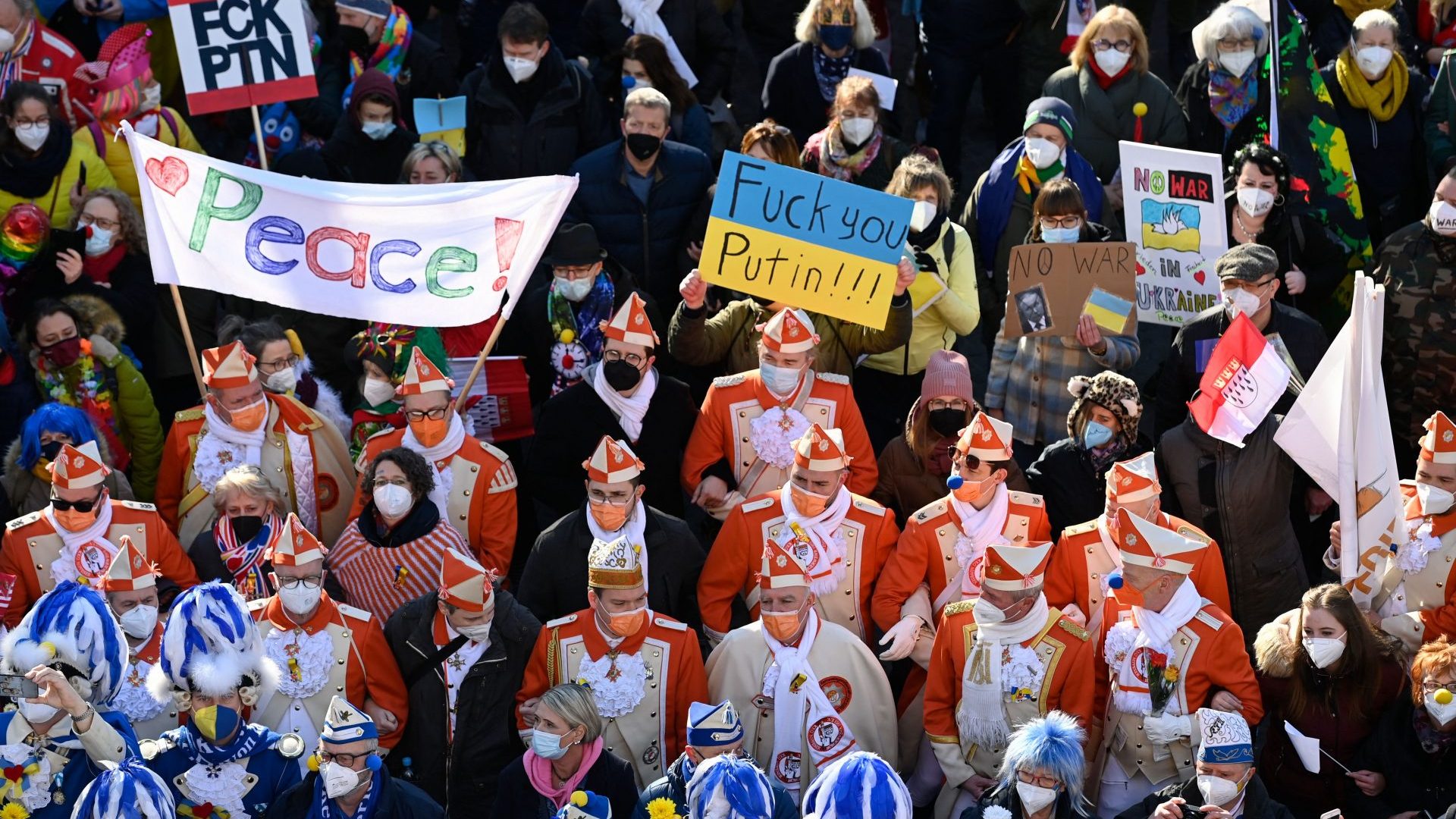As I was walking past Friedrichstrasse station in Berlin, I was discussing the prospect of nuclear war with a colleague in the German government. As you do now.
The location added extra tension to our conversation. It was here that East Germans were allowed to meet their West German friends coming over the Berlin Wall for the day. The anonymous hall where entries and exits were processed has been turned into a museum, the Palace of Tears.
This was the epicentre of divided Europe, where the great tensions of the cold war were played out, where on one occasion in 1961, shortly after the wall was erected, Soviet and American tanks nearly initiated another world war.
And here we are, all over again. Only the night before, I was at a gathering of western ambassadors where the prospect of conventional, chemical or nuclear warfare was raised. It was done entirely soberly. Nobody quite knows what to say in these situations.
The one taboo is to posit the thought that the invasion of Ukraine will somehow peter out and that Vladimir Putin will get back in his box.
Yet there is, among the gloom and alarm, perhaps another way to look at it. Between 1945 and 1989 (or 1991 depending on how you cut it) the Kremlin held sway over half of the European continent. From Yerevan to Warsaw, from Bucharest to Tashkent, Soviet influence reigned supreme. Where resistance was encountered, in 1953 in East Berlin, 1956 in Budapest and 1968 in Prague, it was swept aside.
The peaceful revolutions that put an end to communist dictatorship in the late 1980s were an exception to the rule. But, while all the talk over the past decade and more has been about the “democratic recession”, it is worth remembering that the borders of tyranny were significantly rolled back 30 years ago.
It’s just that we forgot to value what we had gained.
In December 2016, a month before Donald Trump was to be sworn in as the 45th president of the US, the Stanford sociologist, Larry Diamond, wrote: “We stand now at the most dangerous moment for liberal democracy since the end of World War II. There are still many more democracies worldwide today than when the cold war ended. But outside the West, many of them are fragile or rapidly declining.”
He added, with admirable foresight: “Having a Europe that is whole and free is a vital American interest… ensuring that an authoritarian Russian regime does not replicate its values and expand its power by subverting democracy in the heart of Europe is also a vital American interest.”
For each of the past 16 years, the number of countries classed as “free” or “partially free” has declined, according to the index put together by the American not-for-profit, Freedom House. The year 2016 had all the big reverses – Trump, Brexit, the prospect of Marine Le Pen. But these were subsequently seen as symptoms, not causes, of a wider malaise.
As different variants of Armageddon are discussed in Berlin, politicians, policymakers and the public are clinging to any optimism they can find. Finland and Sweden clamouring to join Nato; Moldova and Georgia joining Ukraine in lodging bids for EU membership (an important symbol of their resolve); Emmanuel Macron surely seeing off his far-right, Putin-loving challengers in France; Poland suspending its petulance towards the EU; even Hungary’s Viktor Orbán beginning to see where his future priorities might lie; Switzerland and Monaco falling into line on dodgy money.
The biggest change of the past two weeks has come in Germany, where a country that thinks hard about its democracy now realises it will have to use hard power to defend it.
The real test, diplomats say, lies not in these individual examples, but in whether or not collective action will stick. Francis Fukuyama, the man deemed to have declared the end of history in his famous essay and book marking the collapse of communism, wrote this last weekend: “The world will have learnt what the value of a liberal world order is, and that it will not survive unless people struggle for it and show each other mutual support. The Ukrainians, more than any other people, have shown what true bravery is, and that the spirit of 1989 remains alive in their corner of the world. For the rest of us, it has been slumbering and is being reawakened.”
Is this reawakening here to stay? It is tempting in times of crisis to draw sweeping conclusions pointing to change. When the pandemic struck, it became axiomatic to talk of the “new normal”. Yet, two years on, this new normal doesn’t look too dissimilar to the old.
So will we revert to the “old normal” when it comes to Russia, taking its money with alacrity while failing to stand up to its aggression? The initial signs are positive. In Germany, the polls are stunning. In barely three days, Olaf Scholz has turned around a mindset entrenched for decades. More than three-quarters of voters have suddenly embraced the idea it will have to spend far more on its military. A year ago that figure was around 15%.
Such is the horror felt by Germans towards Putin’s assault on Ukraine, it is likely that this determination will stick for a while yet. But what happens next winter, when a country uniquely dependent on energy from Russia begins to feel the squeeze? What happens when the welcome shown to Ukrainian refugees turns sour, as is invariably the case?
A Europe staring at high inflation, huge increases in electricity and gas prices and possible shortages may yet turn against this latest wave of migrants, even though their “whiteness” and “Christian-ness” is likely to ensure a slightly better reception than that afforded to Syrians, Afghans and others post-2015.
Have the populist waves, financed by and enthusiastic towards Putin, really been seen off?
In the UK, there is little sign that Boris Johnson and the Brexiteers have understood the value of true European cohesion.
Has Biden won back enough support to make this November’s mid-term elections any less of a carnage for the Democrats? European and American analysts are holding on to the hope that, by supporting the invasion of Ukraine, Trump will not have helped his 2024 re-election chances, at least among floating voters.
What happens to this remarkable and new-found cooperation when conflict fatigue sets in? Pressure will eventually pile on Volodymyr Zelensky, the president of Ukraine, to sue for peace, in order to restore some calm to the rest of Europe. A new narrative of betrayal would result.
Public displays of solidarity with Ukraine and its yearning for democracy are all the rage. In a year’s time, will they be seen as a passing fad? As another moment of weakness by the West, or will the lessons of Berlin have been learned?




